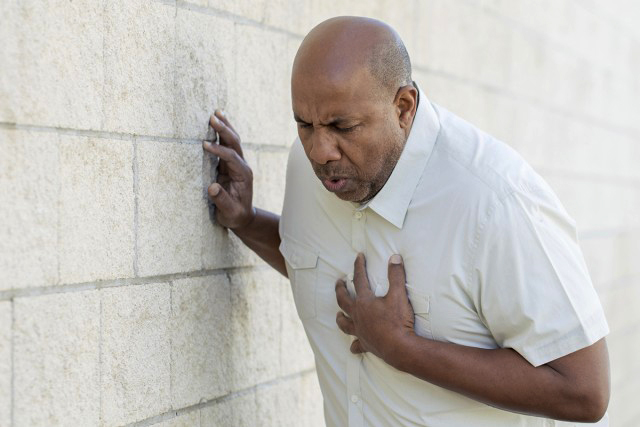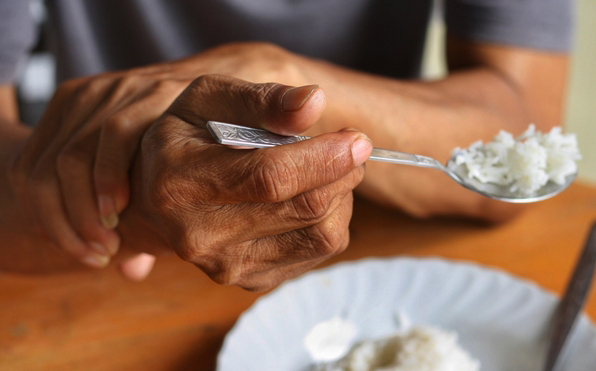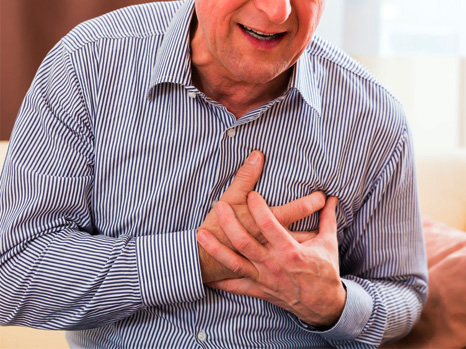Heart attack: signs and preventive remedies
- Posted on 22/09/2023 17:08
- Film
- By abelozih@sante-education.tg

Extract from the article: A heart attack or cardiac arrest is the discomfort that occurs when a clot blocks the arteries, preventing blood from flowing to the heart. When this blockage occurs, the heart does not receive enough oxygen and the heart cells die.
A
heart attack or cardiac arrest is the discomfort that occurs when a clot blocks
the arteries, preventing blood from flowing to the heart. When this blockage
occurs, the heart does not receive enough oxygen and the heart cells die.
A
myocardial infarction or heart attack generally manifests itself as severe
chest pain, difficulty breathing or even nausea. The cause: an artery in the
heart suddenly becomes blocked. With poor blood supply, the part of the heart
muscle (myocardium) concerned stops working.
Breathing
problems
If
you feel tired and have difficulty breathing, you need to be very careful. This
could be a symptom of cardiac arrest. This can happen months before you suffer
a heart attack. Consult your doctor as soon as possible.
Excessive
sweating
Excessive
sweating is another symptom of impending cardiac arrest. If you find that you
are sweating very often and profusely, even though you are not exercising, this
could be a sign that your heart is suffering from some kind of problem.
Nausea
and vomitingIt is very difficult to identify whether vomiting or nausea may be
a symptom of a coronary problem.Heart attacks are often preceded by digestive
problems, including nausea and vomiting. But be very careful because you could
be suffering from a more serious problem.
Chest
pain
Chest
pain, if caused by a heart attack, usually lasts about 15 minutes. It is
characterised by intense pressure on the chest, which may spread to the arms
and shoulders. This pain usually occurs on the left side of the body and may
appear several days before the attack.
Back
and jaw pain
Back
and jaw pain can also occur when a heart attack is imminent.These symptoms tend
to occur more often in women than in men, so if you suddenly notice these
discomforts, consult a doctor.DizzinessDizziness can be accompanied by vertigo,
which can increase steadily.The person affected then loses their balance and
finds themselves in a state of great confusion. Remain calm and do not make any
sudden movements if you find yourself in this situation.
Preventing
heart attacks
Healthy
habits that help prevent a heart attack include eating a healthy diet, not
smoking, exercising and avoiding a sedentary lifestyle as much as
possible.Consult your cardiologist.
Natural
recipes
Recipe 1: 1 litre of water, 03 tablespoons of bissap (dried hibiscus flowers), 2 limes, 3 sprigs of fresh mint, 01 teaspoon of powdered ginger, 2 tablespoons of honey, 4 cloves. Add the bissap to 01 litre of very hot water and boil for 15 minutes.Strain and collect the juice in a beaker.Add the honey, lemons with the peel cut in half, ginger, cloves and mint leaves. Serve. Take one glass morning, noon and night for 01 week.
Recipe
2: 03 tablespoons of bissap (dried hibiscus flowers), 02 teaspoons of powdered
ginger, 01 pineapple, 02 tablespoons of honey, 01 teaspoon of cinnamon, 10
cloves, 3 mint leaves. In a large saucepan, add the hibiscus flowers, chopped
ginger, pineapple skin cut into small pieces, cinnamon, cloves and mint.And the
pineapple flesh. Pour about 2 litres of water into the pan and bring to the
boil over a low heat for 30 to 40 minutes. Leave to cool naturally and
strain.Add the honey to the juice and drink.Drink 01 glass, morning and noon
for 02 weeks.Keeping well hydrated is also important.
Warning
The
elderly, smokers and people with high blood pressure, high cholesterol and
diabetes are more likely than others to suffer from heart disease. A sedentary
lifestyle and being overweight are also on the list of risk factors, as is a
family history of cholesterol or myocardial infarction.
William
O.




